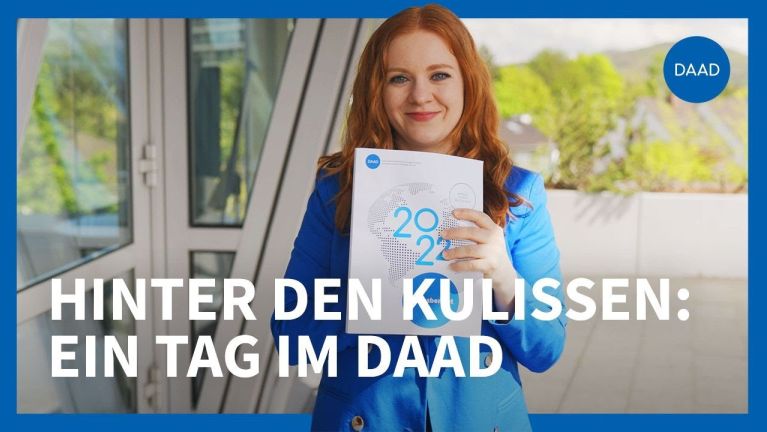The DAAD: connecting people around the world
More than 140,000 scholarships per year: let us introduce you to the DAAD, the world’s largest funding organisation for international academic exchange.

Its success is overwhelming: since being founded in 1925, the German Academic Exchange Service (DAAD) has funded more than three million scholarship holders from Germany and around the world. Here are some facts and figures for you:
- more than 140,000 German and international students and researchers are supported by the DAAD every year - something no other organisation in the world has been able to achieve. Its scholarship programmes enable students, graduates, researchers and teachers to take advantage of the best study and research opportunities.
- The DAAD was originally founded on the initiative of a student who sought to acquire scholarships for German students at American universities.
- Around 60 Regional Offices and Information Centres plus approximately 400 Lectureships and long-term lecturers at universities abroad: the DAAD has wide-ranging expertise and generates important impetus for foreign science policy discourse.
- Its budget comes primarily from federal funds provided by various ministries - above all from the Federal Foreign Office and the Federal Ministry for Education and Research - but also from the European Union. In 2023, the DAAD had a total budget of nearly 840 million euros.
Dieses YouTube-Video kann in einem neuen Tab abgespielt werden
YouTube öffnenThird party content
We use YouTube to embed content that may collect data about your activity. Please review the details and accept the service to see this content.
Open consent formIn a changing world, and in view of the major global challenges, the DAAD is positioning itself as an increasingly important stakeholder in research and academic relations policy and science diplomacy.
Its Strategy 2030 follows a foreign science realpolitik approach that highlights the opportunities of international cooperation while consciously reflecting on potential risks. This is because international academic cooperation is more important than ever - yet at the same time scientific exchange is becoming increasingly more complex due to geopolitical shifts and conflicts.
The DAAD Strategy 2030 sets four priorities:
- to strengthen Germany as a location for academia, science, innovation and business
- to seek joint solutions to global challenges
- to shape science diplomacy
- to promote democracy and social cohesion.
With funding programmes intended for example for at-risk students, doctoral candidates and researchers, the DAAD is responding to current global challenges. It is also active in countries in crisis, where it contributes to dialogue and understanding. It provides advice on education, foreign science and development policy and supports countries of the Global South with establishing efficient universities.
The DAAD funds transnational cooperation and university partnerships, strengthens German studies and the German language abroad and is committed to the internationalisation of the higher education and science system. At the same time, the DAAD serves as Germany’s National Agency for Erasmus+ Higher Education Cooperation, which gives young people and for example university staff opportunities to acquire international experience.

